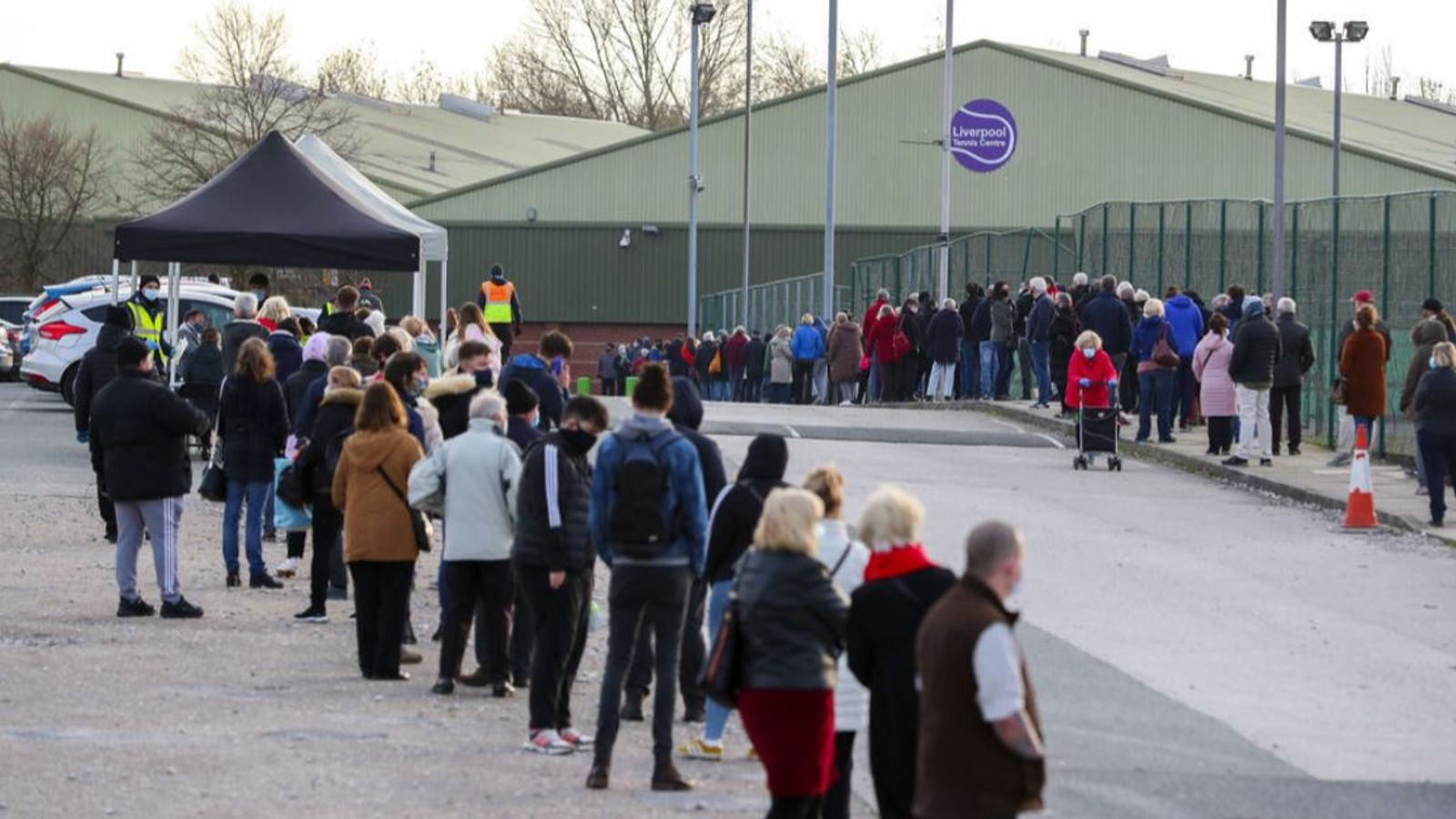Government scientists looked into mass coronavirus testing of almost everyone in the UK – before concluding that a more targeted approach would be more effective.
The Scientific Advisory Group for Emergencies (SAGE) group held a number of discussions about the potential impact of a programme in which a large proportion of the population were given one-off COVID-19 tests, newly released documents show.
But the experts decided the plan would probably be less successful at reducing the spread of coronavirus than “focused, more frequent testing of people who are at higher risk of being infected and of infecting others”.
Live coronavirus updates from the UK and around the world
The document, which contains input from the Scientific Pandemic Influenza Group on Modelling (SPI-M), said mass testing could “identify a large number of infected people” if done successfully.
But it noted that doing so alone would not stem transmission, which required people who were early in their infection to isolate.
It said modelling indicated that mass testing was only likely to reduce the prevalence of the virus by 15-20% in a “best-case” scenario – that it “may only buy us a week”.
SAGE also pointed to behavioural factors in the expected success of mass testing, referring to evidence in Liverpool, where mass testing was introduced early in November.
“In Liverpool, positivity of mass testing might be lower than one might expect, based on estimated regional prevalence,” it said.
“This may imply that those coming forward for mass testing are less likely to be infected than average.”
It concludes: “Focused, more frequent testing of people who are at higher risk of being infected and of infecting others (such as key workers, health and social care workers and people in high prevalence areas) is likely to have a bigger impact than less frequent testing of the whole population.
Subscribe to the Daily podcast on Apple Podcasts, Google Podcasts, Spotify, Spreaker
“It is plausible that targeting groups who are less likely to have symptoms (and therefore less likely to be picked up from symptomatic testing), such as younger adults, may have a greater effect but we are not aware of any work evaluating such a strategy.”
It came as a headteachers’ union said it would not be possible to recruit and train all the volunteers needed to carry out COVID-19 tests for students.
The government has said that secondary school and college pupils’ return to class in England will be staggered in the first week of January to help headteachers roll out mass testing of students.
Schools minister Nick Gibb said the tests would be administered by volunteers and agency staff, rather than teachers, with further details due to be published next week – when most schools are closed for Christmas.
But Geoff Barton, general secretary of the Association of School and College Leaders (ASCL), said: “The plans outlined at the last minute by the government for mass testing in schools and colleges from the start of the spring term are undeliverable in that timescale, and it is beyond belief that they were landed on school and college leaders in such a cack-handed manner.”

